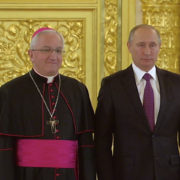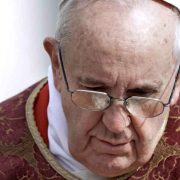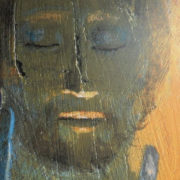
In my first week as a priest I had the privilege to work with forty British and Brazilian young adults on a missionary volunteer project near Petrópolis in Brazil. While a particular highlight was celebrating Mass nearby at the base of Christ the Redeemer statue in Rio de Janeiro – who knew that there was a church in what are effectively Jesus’ feet? – in the time following that experience, I began to reflect on what is understood by missionary activity and to consider the dynamics of faith inspired volunteering in an international context.
I use the word privilege with much deliberation because for too long international volunteering, including missionary work, has been a continuation of (neo)colonial discourse, behaviour, and practice, in which individuals from the Northern hemisphere are able to pause work or study for the presumed good of the Southern hemisphere. The presence of local volunteers is not always sufficient to manage these risks because some volunteers in the Southern hemisphere might associate their development discourse in relation to pre-existing Northern hemisphere narratives.
This is why a theological category such as encounter, and a methodology patterned and interrupted by beholding the faces of others, is crucial in a reflection upon faith-based volunteering. Otherwise, volunteers and researchers potentially lose sight of the importance of interaction and exchange between persons.
Action inspired by Catholic social teaching often follows the see, judge, and act method, with a quick nod to Pope John XIII’s 1961 document Mater et Magistra. Yet, how quickly practitioners move to judgement and action without having observed in the fullest sense. If observation is considered at all it is perhaps directed towards the object of social and missionary action in a way that renders them recipient of a reported transactional goodness, whether desired or not.
Simon Cuff muses that the “see-judge-act method has been criticized for lacking a final reflective component that discerns whether the action taken, and the judgement made, was correct” [1]. To a certain extent, the evaluative aspect is implicit in John XIII’s guiding text whereby “one reviews the concrete situation” [2]. The risk remains in the categorisation and simplification of complexity by an actor who constructs, but is not constitutive of, the observed reality. A more honest and rigorous approach necessitates a self-reflective capacity within action inspired by Catholic social teaching such that the one who ‘reviews’ is also reviewed; to recognise that those who evaluate must necessarily be included in the evaluation. Or, as Shakespeare puts it in his play King Lear there is a continual need to “see better” [3].
Emilia Palladino identifies this as problematic during a pastoral convention in the Diocese of Albano, Italy, recalling how “even those who categorise are categorised” and that the trap of “stereotyped and rigid classifications is not only applied by those who evaluate, but also those who make the evaluation” [4]. Admitting complexity is an important step in the see-judge-act approach because it sees the actor as integrated in the reality being observed rather than as artificially separated from the considered situation. Naming and detailing any limitations, blind spots, prejudices, insight, and vision in an initial observation and eventual evaluation of social action enables people to finally appear beyond an imbalanced transactional relationship.
Italo Mancini’s text Tornino i volti (the faces return) offers a helpful reflection where he pauses to meditate upon the human face because “realism wants you to look at the way things are with an intrepid gaze and without fear” [5]. He contemplates that beholding the faces of others “represents a new way of studying and proposing the theme of the human being not so much because it is easy, but because it is human and dignified in this way”. For Mancini beholding is not just a theological category, but an imperative “because God is presented as a face and not as an abstract principle of norms and precepts”.
To perceive the human face in the manner Mancini proposes is to acknowledge complexity, difficulty, vulnerability and, at times, a desire for dominance, yet it is also a reminder that the “task of interpreting” humanity is incomplete. Due to these challenges the observational step in Catholic social teaching method is ever more urgent because if it is overlooked then, as Mancini describes, “every you, and every I, is sacrificed on the altar of general totality”.
[1] Love in Action. Catholic Social Teaching for Every Church (London: SCM Press, 2019), p. 159.
[2] Mater et Magistra, no. 237.
[3] Act 1, Scene 1: line 166.
[4] “Il discernimento della realtà complessa: semplificazioni e applicazioni. Discernere i segni dei tempi, per un discernimento incarnato nella storia”, in Tra il Dire e il Fare. Un discernimento incarnato e inclusivo (Albano Laziale: Associazione Mither Thev, 2019), p. 50.
[5] Genova, Marietti 1989, p. 49-50.





